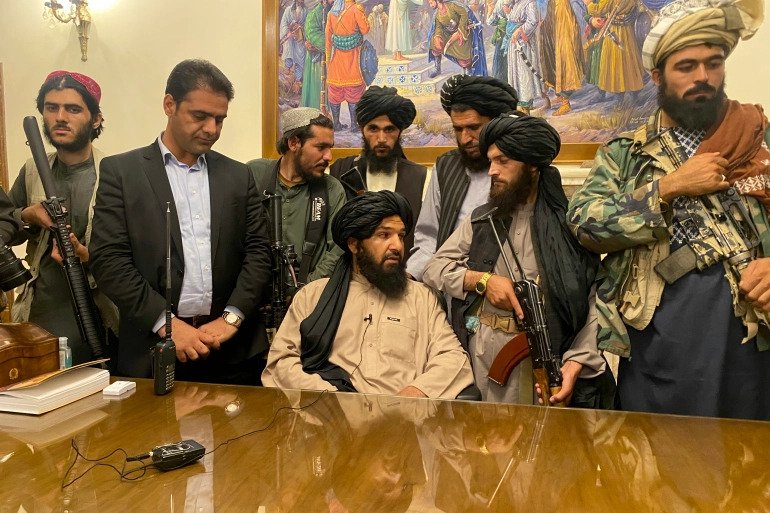The Taliban’s takeover of Afghanistan has plunged the nation into turmoil, triggering a financial crisis as citizens struggle to access their funds. With banks shutting their doors and an economy on the brink of collapse, the need for a decentralized financial system has become more evident than ever.
This article explores how the crisis in Afghanistan underscores the value of cryptocurrencies and decentralized finance (DeFi) as lifelines in times of economic instability.
The Onset of Financial Pandemonium
Economic Collapse in Afghanistan
The fall of Kabul and the subsequent Taliban takeover have thrown Afghanistan into chaos:
- Bank Closures: Citizens are unable to access funds as banks remain shuttered.
- Panic and Fear: A collapsing economy has left people scrambling to safeguard their wealth for survival.
A Struggle for Financial Freedom
Amid the pandemonium, the centralization of financial systems has exacerbated the crisis. With traditional banking systems failing, many Afghans are left without access to their own money.
Cryptocurrency: A Beacon of Hope
Voices Advocating for Decentralization
Alex Gladstein, Chief Strategy Officer of the Human Rights Foundation, highlighted how Bitcoin has served as a lifeline for Afghan citizens:
- Real-Life Example:
“Young Afghan women working with @RoyaMahboob and the Digital Citizen Fund were a self-custody of Bitcoin as early as 2013. One used her BTC savings to escape to Europe and start a new life.”
- Empowerment Through Crypto: Cryptocurrency offers a way for individuals to maintain financial autonomy, even in the face of systemic collapse.
Why Afghanistan Needs Decentralized Finance
1. Bypassing Centralized Failures
The Afghan crisis demonstrates how reliance on centralized financial systems can leave citizens powerless when those systems fail.
- DeFi Advantage: Decentralized systems allow users to control their funds without reliance on banks or governments.
2. Financial Inclusion
Cryptocurrencies provide access to financial tools for those who are unbanked or underserved by traditional financial institutions, a situation many Afghans find themselves in today.
3. A Lifeline During Crisis
- Accessibility: Cryptocurrencies can be accessed with just a smartphone and an internet connection.
- Global Utility: They can be used for cross-border payments, enabling Afghans to receive aid or support from family abroad.
Real-World Examples of Crypto Adoption in Afghanistan
1. Roya Mahboob and Bitcoin
Roya Mahboob, an Afghan entrepreneur, introduced Bitcoin to young Afghan women through the Digital Citizen Fund.
- Many of these women used Bitcoin to save money securely, protecting their finances from systemic risks.
- One individual utilized her Bitcoin savings to escape Afghanistan and start anew in Europe.
2. Growing DeFi Awareness
The current crisis is raising awareness about the importance of decentralized systems, prompting more individuals and organizations to explore cryptocurrency as an alternative.
Lessons for the World: Why Crypto is the Future
1. Resilience in Uncertainty
Cryptocurrencies offer a hedge against political and economic instability, ensuring that individuals retain control over their assets.
2. Global Adoption Trends
- Countries facing economic crises, like Venezuela and Lebanon, have turned to Bitcoin as a means of survival.
- Afghanistan’s situation serves as another stark reminder of why decentralized systems are essential.
3. Decentralization and Human Rights
Cryptocurrencies empower individuals by:
- Protecting their financial privacy.
- Offering an escape route from oppressive systems.
FAQs
How is cryptocurrency helping Afghans during the crisis?
Cryptocurrency provides Afghans with a secure, decentralized way to store and transfer funds, bypassing the failures of the centralized banking system.
What makes decentralized finance (DeFi) essential in crises like Afghanistan’s?
DeFi allows users to control their finances independently, ensuring access to funds even when banks and traditional systems collapse.
Are there examples of successful crypto adoption in Afghanistan?
Yes, Afghan entrepreneur Roya Mahboob introduced Bitcoin to young women, some of whom used it to escape oppressive conditions and start new lives.
Why is decentralization important in the financial system?
Decentralization prevents over-reliance on centralized authorities, offering individuals greater control and resilience during systemic failures.
Can cryptocurrencies be a long-term solution for countries in turmoil?
Cryptocurrencies can provide immediate relief and long-term financial stability, especially in regions prone to political and economic instability.
What role can the global crypto community play in Afghanistan’s recovery?
The crypto community can offer education, tools, and resources to empower Afghans, ensuring they have access to financial systems that are fair and secure.
Conclusion
The crisis in Afghanistan serves as a stark reminder of the fragility of centralized economies and the urgent need for decentralized solutions. Cryptocurrencies like Bitcoin offer hope and empowerment, enabling individuals to safeguard their finances and navigate uncertainty.
As the world watches Afghanistan’s plight, it becomes clear that embracing decentralized finance is not just a technological advancement—it’s a necessity for ensuring financial autonomy and resilience in an unpredictable world.
To learn more about the innovative startups shaping the future of the crypto industry, explore our article on latest news, where we delve into the most promising ventures and their potential to disrupt traditional industries.
Disclaimer: The information provided is not trading advice, Bitcoinworld.co.in holds no liability for any investments made based on the information provided on this page. We strongly recommend independent research and/or consultation with a qualified professional before making any investment decisions.




